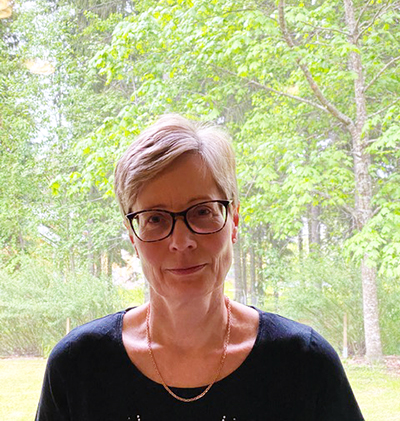Head of data-driven care
The challenge
A reliable and user-friendly solution was needed to expedite patient data entry and availability.
The solution
Lifecare Speech Recognition has been met with enthusiasm at the Central Finland Health Care District.
About the customer
The Central Finland Health Care District is comprised of 21 municipalities: Hankasalmi, Joutsa, Jyväskylä, Kannonkoski, Karstula, Keuruu, Kinnula, Kivijärvi, Konnevesi, Kyyjärvi, Laukaa, Luhanka, Multia, Muurame, Petäjävesi, Pihtipudas, Saarijärvi, Toivakka, Uurainen, Viitasaari, and Äänekoski. Approximately 270 000 residents live in the district area.
Central Finland is the largest non-university hospital district in Finland with roughly 3000 employees.
The central hospital located in Jyväskylä functions as the health care district’s headquarters. An all-new central hospital building is scheduled to be completed in 2020.
Considerable savings
Speech recognition transcribes doctor’s dictation to text. Before, transcription was done by secretaries.
Real time data transfer
Medical records are instantly transferred from one professional to another, resulting in less waiting and faster patient care.
High-quality entries
With the help of speech recognition, more clinical data is saved with less repetition.

From thoughts into text
The Central Finland Health Care District has been using Lifecare Speech Recognition (powered by Nuance Dragon technology) since the summer of 2020. At first, there was some skepticism about the solution due to prior experiences with speech recognition.
”It’s just so handy. I would even use speech recognition at home, if it was possible. It truly does transcribe exactly what I’m thinking of”, Chief Medical Information Officer and Endocrinologist Anna-Mari Koski sums up her experience with Lifecare Speech Recognition.
The staff in the hospital district has started using speech recognition purely on its own volition.
”We have approximately 400 doctors working in specialized healthcare, and half of them are already using speech recognition. I think it’s a good number and we’re getting more users all the time. People have been thrilled with the solution and happy to spread the message in their wards.”
The Central Finland Health Care District is now expanding the use of speech recognition to also primary healthcare.
”Our goal is to make speech recognition the only method for making entries.”

”The Hospital District is undergoing several changes at the moment. Regardless, the doctors have started using speech recognition commendably.”
Anna-Mari Koski
CMIO, Endocrinologist, The Central Finland Health Care District

Video is blocked
Speech recognition revolutionizes data transfer in healthcare
For Koski, the most significant advantage of speech recognition is the real time transfer of data from one professional to another.
”It expedites data transfer substantially. Traditionally, dictations have first gone to secretaries and the information has not been available until the dictations have been transcribed. Speech recognition removes this step from the process, making entries instantly available for all professionals.”
Expedited data transfer has immediate effects on patient care. For example, when a patient is being moved from the emergency clinic to the ward, all patient data is immediately available from the electronic medical records as soon as the doctor has finished her dictation.
Furthermore, patients themselves can review their health data and, for example, home care instructions through the My Kanta Pages, the national health record service.
”Speech recognition changes the way entries are made in the same way that email changed the delivery of mail. There are so many advantages to speech recognition that the small amount of time needed for familiarizing with the technology is completely worth it.”
A reliable colleague that produces high-quality text
According to Koski, working with Lifecare Speech Recognition is easy. Doctors can dictate notes just as before without having to learn a new dictation technique.
”Lifecare Speech Recognition is a reliable colleague that transcribes very well what’s being said. In our work we use a lot of abbreviations with a mix of capital and lowercase letters. Before, the tradition of correct spelling was passed on from one secretary to the next. With speech recognition, you teach the desired spelling just once.
The system also makes it possible to use many kinds of automated texts, with the help of which recurring text snippets can be entered with a single voice command.
”This feature in particular is a real time saver. I’m sure in the future users will increasingly take advantage of it.”
Koski also adds that seeing the transcribed text on screen in real time is a significant improvement.
”Sometimes the entries can be quite long. Before you had to remember what you had said 10 minutes ago and whether you’d already given all the essential information. Now you can review the text while you’re dictating, which reduces repetition and improves the quality of entries."
”Speech recognition recognises both medical terminology and vocabulary used in everyday life.”
Anna-Mari Koski
CMIO, Endocrinologist, The Central Finland Health Care District
Interested to find out more? Read more about Lifecare Speech Recognition





